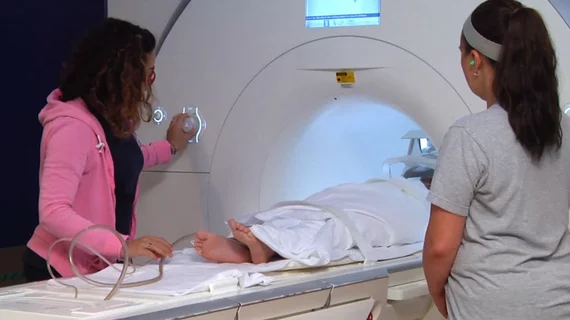A lack of CPT codes for rapid pediatric MRI exams is costing patients
The lack of a proper code for rapid MRI exams for suspected appendicitis in children is burdening families with unnecessary expenses, new analysis suggests.
Published in the Journal of the American College of Radiology, the paper highlights significant differences in the cost of rapid MRI exams for appendicitis in children compared to other MRI scans billed with the same current procedural technology (CPT) codes commonly used for MRI appendicitis exams. The wide-ranging prices emphasize the need for a specific CPT code for the abbreviated exam, experts involved in the work note.
“The specific imaging modalities used for suspected acute appendicitis, and the way in which they are used (i.e. first line, staged approach) directly impacts the cost of care,” Pradipta Debnath, MD, of Cincinnati Children’s Hospital Medical Center in Ohio, and colleagues explain. “Currently there is significant variability in how MRI for appendicitis is billed. Even though MRI appendicitis protocols tend to include substantially fewer sequences than typical MRI examinations of the abdomen and/or pelvis, aside from applying a limited modifier, it is difficult to reduce the charge for this examination alone.”
Abbreviated MRI exams for suspected appendicitis take less time for radiologists to interpret. But in the absence of a proper CPT code for abbreviated MRI protocols to rule out appendicitis, providers have to bill using codes for other exams of the abdomen and pelvis that typically take more time to read.
Debnath and colleagues conducted a time driven activity-based costing analysis to measure the differences in pricing of an abbreviated appendicitis protocol in comparison to other exams commonly used to detect the condition. MRI pelvis without intravenous contrast, MRI abdomen/pelvis without intravenous contrast and MRI abdomen/pelvis with intravenous contrast were all included in the analysis.
The team also incorporated the CPT codes used for 327 MRI exams from electronic medical records to compare scan times to the associated provider costs.
MRI abdomen/pelvis with intravenous contrast scan times took the longest, ranging from 39 to 303 minutes (average 128), and were the most expensive, coming in at an average provider cost of $236.99 per exam. That same exam without contrast was next in line, with an average scan time of 65 minutes and provider costs of $144.83, followed by MRI pelvis without contrast, which took an average of 55 minutes and cost around $106.
Not surprisingly, “MRI appendicitis”—the shortened protocol that did not utilize contrast—took the least amount of time at just 11 minutes. It also cost providers just over $20 on average, highlighting significant gaps in both pricing and interpretation times.
The group says their findings highlight the need for a unique CPT code for this examination.
“A new CPT code associated with a lower patient charge should position this highly effective imaging modality to be a cost-effective tool for children with suspected appendicitis,” the group suggests.
The study abstract is available here.

